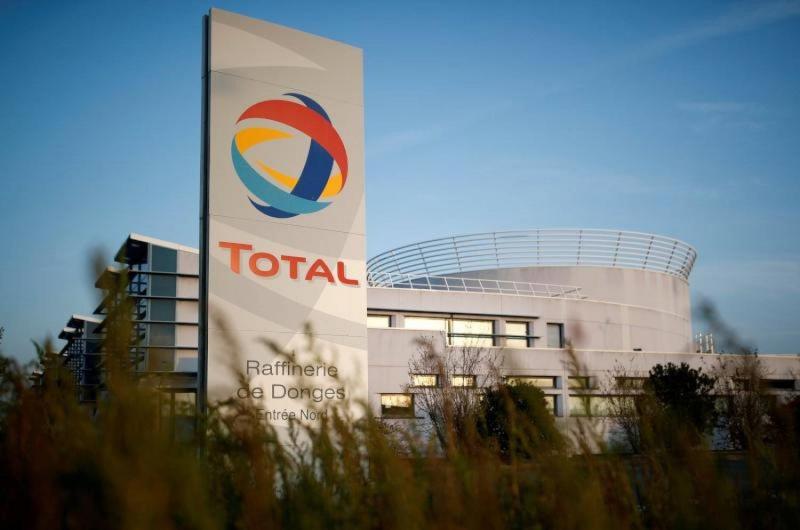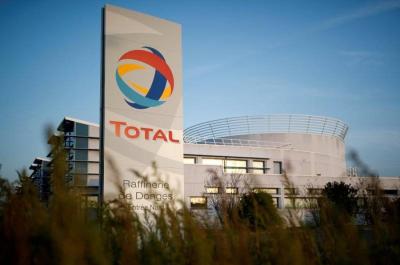In a painful military blow, Total announced the cessation of drilling operations in block number 9 after it became apparent that there were no commercial quantities in the Kana reservoir. The company stated it had drilled to a depth of 3,900 meters since starting in August, but did not achieve the desired results. Such news was unnecessary for Lebanon, increasing political tensions and disputes, leading to the exchange of accusations and placing President Michel Aoun's term under scrutiny for alleged conspiracy and distortion of facts.
Total's announcement was treated with a politically malicious approach, devoid of national sentiment. The company's suspension of drilling amidst the ongoing war in Palestinian territories and the call from Western and Arab countries for their nationals to leave Lebanon necessitates a pause for consideration of both the timing and content of the announcement. The company, which had announced the commencement of drilling operations that typically require a long duration, hastily stated, "There is no gas reservoir in the field where we are working, which is block number 9." Is this a political declaration before being a technical one?
Sources monitoring the oil exploration file told "Nidaa al-Watan" that the confusion caused by Total's announcement to halt its work made the Ministry of Energy clarify that the door remains open for the possibility of gas presence. The sources corrected the narrative by stating, "There is no discovery of commercial quantities, but discovery remains possible," explaining the situation with Total as follows: "It became clear that the targeted layer did not contain the expected quantities. It was supposed to drill down to about 4,200 meters but instead stopped at 3,300 meters, discovering that the gas had leaked for years. This does not mean there is no gas in the Kana field, as Kana is a field, not a reservoir."
The source closely following the case does not overlook the geopolitical element of Total's announcement: "Political pressure is present and affects the speed of drilling operations or slows them down. It was clear that the goal was to subject Lebanon to further pressure, asserting that the deterioration of the situation on the border with occupied Palestine means that exploration is impossible." However, "the company cannot conceal any positive results. If the drilling operations indicated the presence of gas, it would have announced the result immediately. But the political factor is strongly present in the timing and method of the announcement."
From a technical standpoint, the source clarifies that studies previously conducted on several geological phases, both two-dimensional and three-dimensional, spoke of the possibility of gas presence at a depth of 4,000 meters underwater. It was found that the gas had leaked over the years; and this is a world of wide possibilities. If 10 geopoliticians gather, it means there will be eight different opinions. The results of drilling cannot be confirmed one hundred percent until the well is actually drilled.
The source confirms that drilling operations revealed a very good quality of sand, and while gas is absent, "this does not mean that the surrounding layers are devoid of gas. Therefore, we say that the political factor cannot be ignored in the matter, but not to the extent of conspiracy." The source criticizes the political attack and the negative atmosphere that arose following Total's announcement, which seems to aim at "scaring away companies that intend to invest in the sector and the remaining blocks," indicating that attracting these companies was a goal of the demarcation with Israel, primarily to provide guarantees for companies to submit their proposals for investment in Lebanon.
The source also notes the sudden appearance of numerous energy experts who went on to analyze Total's results, making it seem as if there are 128 energy experts in Lebanon based on the latest sessions of the parliamentary committee.
The sources reject the conspiracy theory, stating, "It is not possible for the company to make a discovery and conceal it from public opinion. From the beginning, the chances of success were 25 percent, and we cannot find gas in every drilled well. In Israel, 11 wells were drilled, and gas was discovered in only three of them. In Lebanon, the company drilled until it reached the targeted layer only to find that gas had leaked for many years. There are several reservoirs, and Total has applied for licenses for blocks 8 and 10, meaning it will continue working and has studies pending to issue the final report, which is expected to take time." In other words, hope still exists for Lebanon to discover its wealth, but the security situation will influence this. Total quickly announced transferring its equipment to work in Cyprus, indicating that its return to drilling in new sites will not be in the near term.
The source denies the talk regarding large quantities of gas being present in the section that Lebanon ceded to Israel in the agreement on point 23 of the border instead of 29, stating, "Lebanon did not overlook its share in the Kana field, and the part that is under Israel's control is not Lebanese."
Total has left behind significant questions while the Ministry of Energy awaits its detailed report requested by the Minister of Energy. Legally, Total is expected to submit its report to the relevant parties within two months—still ample time. However, the report will be a matter of discussion and dispute between the company and Lebanon, according to energy sources. Lebanon does not possess information confirming that Total experienced political pressures that accelerated the announcement of its results, but given the political context, the possibility of pressure remains plausible, especially since the announcement came in an ambiguous and highly sensitive political climate to convey a political message, whether by the company's intent or external influences, preventing Lebanon from benefiting from its oil wealth amidst the presence of "Hezbollah" on the border.




